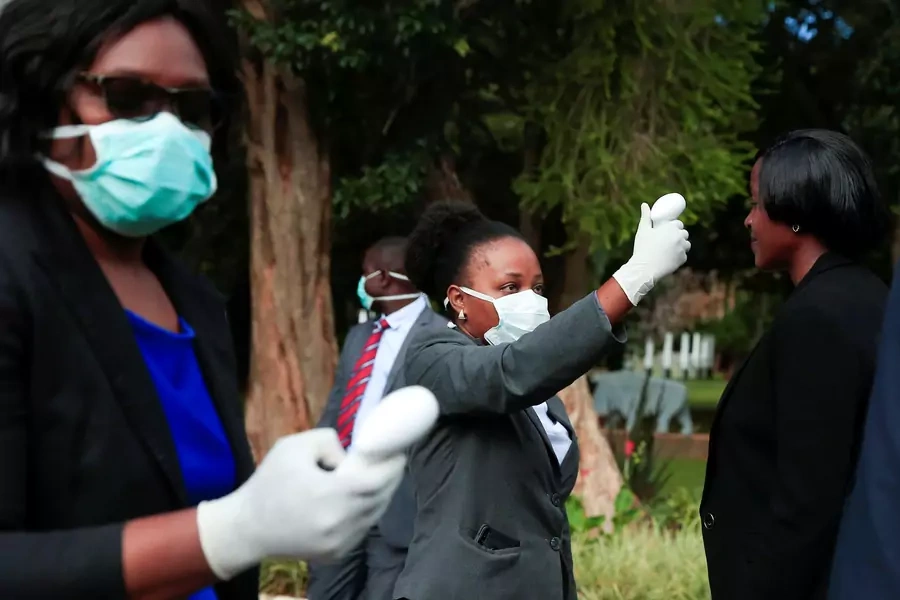One Challenge to Africa's Response to COVID-19: Public Trust in Institutions

The coronavirus pandemic dominating global headlines and individual anxiety lists powerfully illustrates the importance, and fragility, of trust in public officials. Public health depends upon participation, and when citizens mistrust those asking them to make sacrifices or take unusual steps to protect the greater good, even the most thoughtful interventions are doomed to fail.
This might be a critical issue should COVID-19 take hold widely in Africa. In recent years, Afrobarometer found that across 36 countries, more people expressed trust in religious and traditional leaders than in their states’ formal executive institutions. Levels of trust in government authorities varied widely from country to country, but they were consistently tied to whether people believed an institution to be corrupt or self-serving.
More on:
The consequences of mistrust can be dire. Consider the recent Ebola outbreak in the Democratic Republic of the Congo. This week, citizens and public health workers are enjoying a hard-earned victory as they celebrate four weeks since the last confirmed case of the disease in the region. But just a few months ago, some residents in affected areas were so distrustful of local authorities and so deeply suspicious of the motives of healthcare workers that they targeted them in sometimes-deadly physical attacks.
Alternative sources of moral authority will be essential partners to the national and international leaders working to slow the pace of the COVID-19 advance. When the scope and ferocity of the HIV/AIDS pandemic was becoming clear in the 1990s, some of the most encouraging successes in boosting prevention efforts came from places that enlisted nongovernmental moral authorities—imams in Senegal, popular musicians in Southern Africa—to effectively deliver information and public health messages to the population.
Around the world, trust in a time of uncertainty and upheaval is essential for cooperation and ensuring the best possible outcomes. It is also hard to come by. Reported cases of the virus are not yet widespread in Africa, but there is no reason to assume the region will be spared. An all-hands-on-deck approach to delivering critical messages and modeling best practices—one that embraces nongovernmental leaders—should be an urgent priority on the ground.
More on:
 Online Store
Online Store